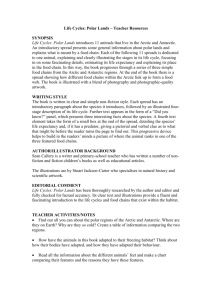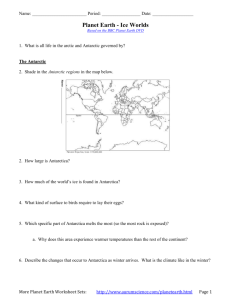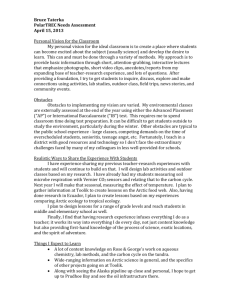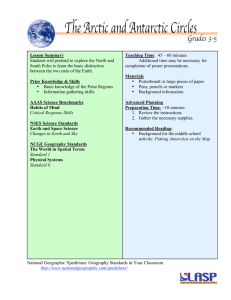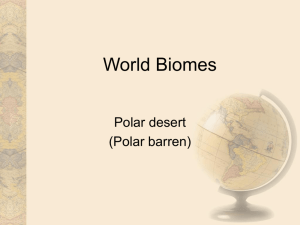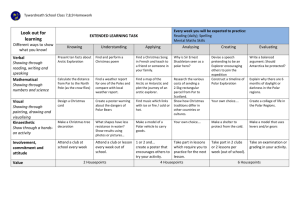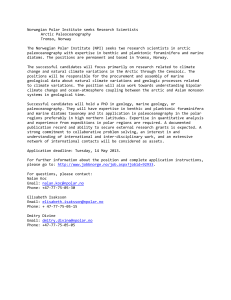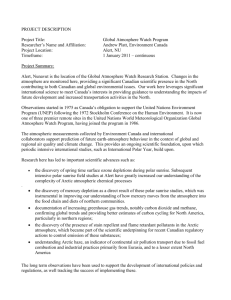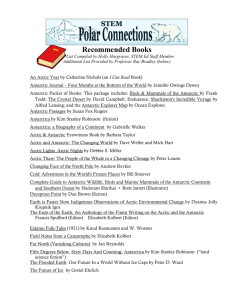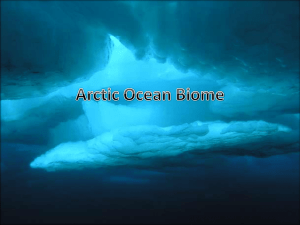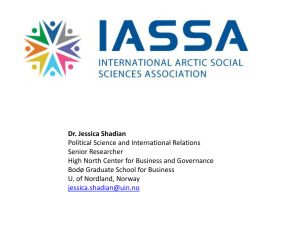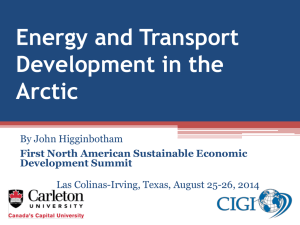Contemporary Geopolitics of the Polar Regions
advertisement
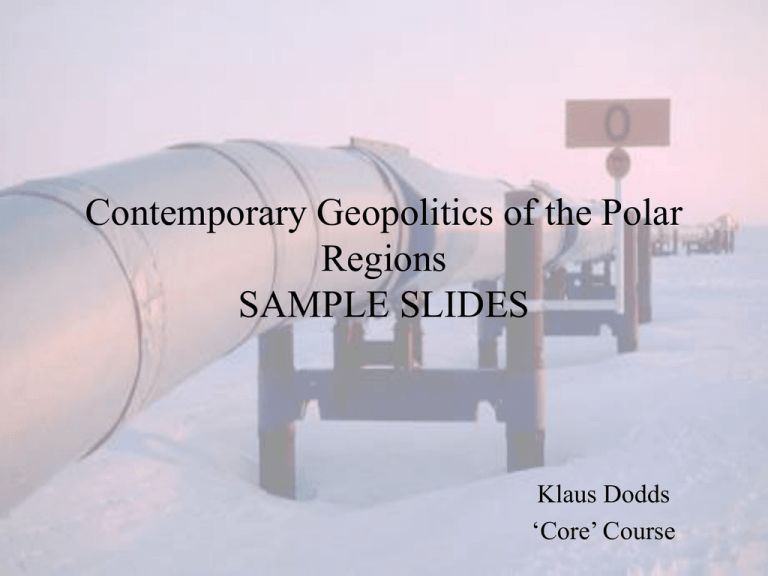
Contemporary Geopolitics of the Polar Regions SAMPLE SLIDES Klaus Dodds ‘Core’ Course Frozen Planet • Why do the Polar Regions matter? • Environmental – links to ‘planet earth’ • Resource potential – oil, gas, timber, minerals, fish • Inhabited (human and non-human populations) • Strategic/military – access, shipping lanes, air space • Sovereignty and sovereign rights Who owns the Arctic? Cold War and Polar Regions • Strategic spaces and geopolitics of proximity • Arctic and Antarctic as ‘testing grounds’ • Military, polar science and grand strategy • Populating the Arctic – human security? Submarines, surveying and spying Frontier Nationalism • Frontier discourses/practices • Russia and the Arctic – Conquering Nature • Australia and the Australian polar frontier • Everyday geopolitics and polar nationalism/national security An independent Greenland? Polar Regions and Global Commons • How does the international community address areas of the earth such as Antarctica and potentially the central Arctic Ocean? • What role do property rights, international regimes, national security, technology and regional co-operation play in regulating the Antarctic and oceans? • Can securitization help avoid the ‘tragedy of the commons’? Some Key Readings • K Dodds (2012) The Antarctic: A Very Short Introduction (OUP) • K Dodds (2012) ‘Introduction – The governance of the global commons’ Global Policy 3: 58-60 • J McCannon (2012) A History of the Arctic (University of Chicago Press) • A Hemmings, D Rothwell and K Scott editors (2012) Antarctic Security in the 21st Century (Routledge) • C Emmerson (2010) The Future History of the Arctic (Bodley Head) • F Griffiths, R Heubert and W Lackenbauer (2011) Canada and the Changing Arctic (Wilfred Laurier University Press)
